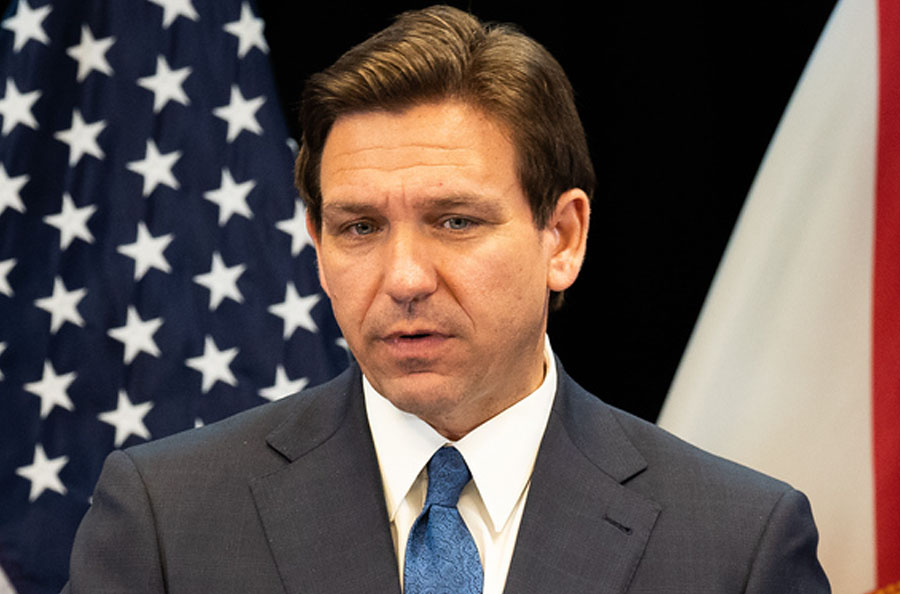
TALLAHASSEE, FL – New Republican presidential candidate Ron DeSantis has announced the launching of his campaign to enter the White House. But while his announcement was marred by a technical glitch on Twitter, the fact that he has thrown his hat into the ring is significant. His campaign will need to remain focused on messaging and work hard to avoid common pitfalls that have doomed so many presidential campaigns in the past.
Over the last six decades, presidential campaigns in the United States have witnessed a wide range of approaches, leading to both successful and failed outcomes. Successful campaigns have often demonstrated effective communication strategies, charismatic leadership, strong organizational infrastructure, and the ability to tap into the prevailing national sentiment. On the other hand, failed campaigns have frequently been marred by inadequate messaging, strategic misjudgments, internal conflicts, or an inability to resonate with the electorate.
In the 1960s, John F. Kennedy’s successful campaign in 1960 was marked by his ability to leverage the power of television. Kennedy’s charisma and telegenic presence allowed him to connect with voters, while his messaging centered on youth, optimism, and progress resonated with the American public. His campaign also employed extensive grassroots organizing, particularly in key battleground states, to secure the necessary support for victory.
Moving into the 1970s, the unsuccessful campaign of George McGovern in 1972 provides an example of strategic missteps. McGovern’s campaign was focused on opposing the Vietnam War, which resonated with a portion of the population. However, his message failed to reach a broader audience, and his campaign lacked the organizational infrastructure needed to compete effectively. McGovern’s nomination was also divisive within the Democratic Party, leading to internal conflicts that further weakened his candidacy. Ultimately, McGovern faced a resounding defeat at the hands of Richard Nixon.
In the 1980s, Ronald Reagan’s successful campaigns in 1980 and 1984 demonstrated the power of effective messaging and a unifying vision. Reagan presented a clear message of conservative values, lower taxes, and a strong defense, appealing to a broad base of voters. He skillfully utilized television and delivered powerful speeches that resonated with the electorate. Reagan’s ability to articulate a compelling vision for America’s future and his optimistic tone contributed to his successful campaigns.
Transitioning into the 1990s and early 2000s, Barack Obama’s successful campaign in 2008 showcased the use of grassroots organizing and harnessing the power of social media. Obama’s campaign utilized innovative digital strategies to engage and mobilize supporters, particularly among young and diverse demographics. His message of hope and change, combined with his inspiring personal story, generated widespread enthusiasm. Obama’s campaign demonstrated the importance of adapting to evolving technologies and effectively utilizing them to connect with voters.
In the more recent past, the unsuccessful campaign of Hillary Clinton in 2016 provides insights into the challenges faced by candidates. Clinton’s campaign struggled to resonate with certain segments of the population, particularly working-class voters in key swing states. Despite a strong organizational structure, Clinton faced criticism for her messaging and lack of authenticity. Additionally, controversies surrounding her use of a private email server, elitism, and her disconnect form the public, further damaged her candidacy. These factors, coupled with strategic miscalculations in campaign spending and targeting, contributed to her defeat to Donald Trump.
In the past, successful presidential campaigns have historically relied on strong messaging, effective communication strategies, grassroots organizing, and the ability to connect with voters on a personal and emotional level. Conversely, failed campaigns have often suffered from messaging challenges, strategic missteps, internal conflicts, or an inability to appeal to the electorate’s prevailing sentiment.
DeSantis may have gotten off to a shaky start, but his campaign has a strong chance of gaining momentum if it focuses on correct messaging. He will need to decide whether he is going to go head-to-head with contender and former US President Donald Trump. Given Trump’s propensity to go on full attack mode during presidential campaigns to eliminate competition, it is likely we will see a fully played out and contentious fight for the Oval Office.

